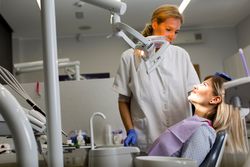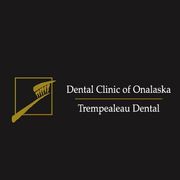TMJ Dislocations: What It Is & What Causes It

TMJ refers to your temporomandibular joint. It’s the muscles near the lower area of your ears that make your jaw move. On occasion, some people experience a TMJ dislocation that requires the assistance of a family dentist. How will you know if this happens to you? Below are some frequently asked questions about this condition.
What Is a TMJ Dislocation?
Just like other ball-and-socket joints in your body like the shoulder and hip, your TMJ can become dislocated if the two parts are misaligned. This occurs when the ball part, known as the condyle, moves out of the socket and doesn’t go back in like it normally does when you close your teeth after yawning. This can be painful as the body panics and may create muscle spasms in the jaw area. This causes the muscles tighten, adding to the difficulty of getting the ball back in place.
You may seek the help of a family dentist for this issue if you have symptoms like your jaw is unable to close all the way. This lockjaw is painful until the TMJ is returned to its normal place.
What Causes This Condition?
 The TMJ can become dislocated in a traumatic incident like a car accident or after having been punched in the mouth. If your jaw is misaligned you are more likely to experience this condition. Individuals who frequently chew gum, grind their teeth, or have arthritis are also at a higher risk of developing a dislocation.
The TMJ can become dislocated in a traumatic incident like a car accident or after having been punched in the mouth. If your jaw is misaligned you are more likely to experience this condition. Individuals who frequently chew gum, grind their teeth, or have arthritis are also at a higher risk of developing a dislocation.
Once a joint has come out of alignment and been returned to its normal position it is typically sore for a few weeks. After these muscles have slipped out of place once, they are more likely to do it again in the future, potentially leading to a chronic condition.
It’s wise to keep the phone number of a family dentist handy in case you experience a TMJ dislocation and need to make an appointment. To learn more about this problem and possible treatment options, call Dental Clinic of Onalaska in Wisconsin at (608) 783-3341. Visit their website for information on the family dentist practice. They offer fillings, extractions, mouthguards, root canals, and X-rays.
About the Business
Have a question? Ask the experts!
Send your question

